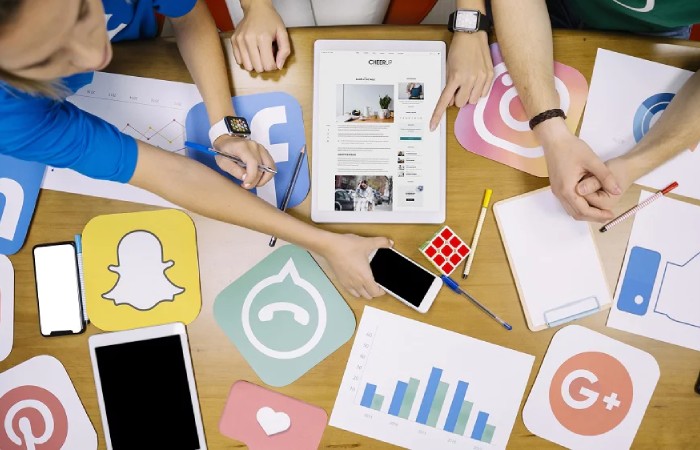Introduction
The online gaming industry has seen a dynamic evolution in recent years in digital marketing, not only in game development and technology but also in how these games are marketed and presented to the public. The fusion of technology and marketing strategies in this digital age has taken online gaming to new heights. Leveraging cutting-edge digital marketing trends has become a cornerstone for game developers and publishers, revolutionizing how games are promoted, perceived, and distributed.
A paradigm shift in marketing practices marked this transformation. From leveraging the influence of influencers to creating personalized user experiences, integrating augmented reality (AR) and virtual reality (VR), capitalizing on social media platforms, and embracing the mobile gaming landscape, the industry is constantly adapting innovative methods to attract and captivate audiences.
This study will delve into the complex ways online games leverage new digital marketing trends. By examining these trends, we will identify strategies for changing the gaming landscape and moving the industry forward in an era dominated by technological advancements and changing consumer behavior.
Importance of Digital Marketing in the Gaming Sector

Digital marketing is an integral and transformative force in the gaming sector, profoundly impacting its growth, reach, and engagement. Several important reasons highlight the utmost importance of digital marketing in this industry:
Global Reach and Accessibility: Digital marketing strategies allow gaming companies to transcend geographic boundaries to reach international audiences. Games can reach millions of players worldwide thanks to online platforms, contributing to a broader market reach that traditional marketing methods often fail to achieve.
Data-Driven Analytics: Digital marketing in gaming uses user analytics and data to understand player behavior, preferences, and trends. This data-driven approach enables targeted marketing efforts, personalized gaming experiences, and the development of content that resonates with specific player segments, optimizing marketing ROI.
Monetization and Revenue Streams: Digital marketing strategies are key in monetizing games through in-app purchases, subscriptions, and advertising. Marketing techniques help promote these revenue streams, ensuring they enhance, rather than disrupt, the gaming experience.
Community Impact and Social Engagement: Gaming communities thrive on social interaction. Digital marketing uses social media platforms and online communities to drive engagement, create user-generated content, and develop a sense of belonging, ultimately contributing to games’ popularity and longevity.
Adapt to changing trends: The digital sphere is rapidly evolving. Digital marketing enables gaming companies to quickly adapt to changing trends, consumer behavior, and technological advancements, ensuring they remain relevant and modest in an ever-changing environment.
Using Influencer Marketing
Influencer marketing has become a widespread strategy in the gaming industry, transforming how audiences promote, perceive, and adopt games. Here is a brief overview of its use:
Rising Influence in the Gaming Industry
The evolution of influence in the gaming industry from passionate gamers to influencers
Platforms like Twitch, YouTube, and social media foster a culture of influence
Cooperation and Partnership
Strategic partnerships between game developers/publishers and influencers
Create custom content, including game streams, reviews, and sponsored content.
Impact on Audience Engagement
Direct connection between influencers and their loyal fan base
Authenticity and relevance, promoting increased engagement and trust among audiences.
Scaling Up Game Releases and Promotions
Influencers as Key Figures in Game Releases and Promotions
Using influence to build excitement and anticipation around game releases.
Influencer marketing has revolutionized the gaming landscape by offering a direct and engaging channel to connect with audiences. Its effectiveness in shaping perceptions, driving engagement, and influencing purchasing decisions continues to strengthen its position as a key strategy for game developers and publishers.
Social Media Integration

Social media addition has become a cornerstone of marketing strategies in the gaming industry. Here is a diagram to learn how to use it:
Game Integration with Social Platforms
Seamless integration for sharing gameplay, achievements, and updates on social media.
Using social media logins and connections for gaming accounts
Social Media as a Marketing Tool
Using social platforms for game announcements, trailers, and teasers.
Engaging in storytelling and content creation for various social media channels.
Community Building and Engagement
Creating and developing gaming communities on platforms such as Facebook Groups, Discord, and Reddit.
Facilitating the creation of user-generated content and encouraging interaction between players.
Live Streaming and User-Generated Content
The importance of platforms like Twitch, YouTube Gaming, and Facebook Gaming for game streaming
Encouraging user-generated content, fan art, and memes to promote games virally.
Influencers and Social Media Campaigns
Collaborating with influencers across numerous social media platforms.
Using influencer reach to enhance gaming promotions and events
Social media integration has changed how games are marketed and redefined player engagement and community building. Its ever-evolving nature opens up new ways and opportunities for game developers to connect, interact, and expand their audience base.
Conclusion
In the dynamic kingdom of online gaming, the convergence of cutting-edge digital marketing trends has changed the landscape, facilitating unprecedented connections between games, gamers, and the gaming community. The convergence of influencer marketing, personalized experiences, social media integration, and innovative technology has propelled the industry into a new era of engagement and interaction.
Influencer marketing has revolutionized game promotion by providing a genuine bridge between creators and audiences, influencing game discovery and purchasing decisions. Personalization driven by data analytics has enhanced the user experience by tailoring games and marketing efforts to individual preferences, strengthening retention and engagement.
Social media integration has gone beyond simple marketing; it has become a hub for community building, user-generated content, and real-time interaction, turning players into active participants and enhancers of the gaming experience.
Furthermore, the integration of new technologies such as augmented reality, computer-generated reality, and artificial intelligence has enriched the gaming experience and opened the doors to innovative marketing campaigns that captivate players and immerse them in new dimensions.

